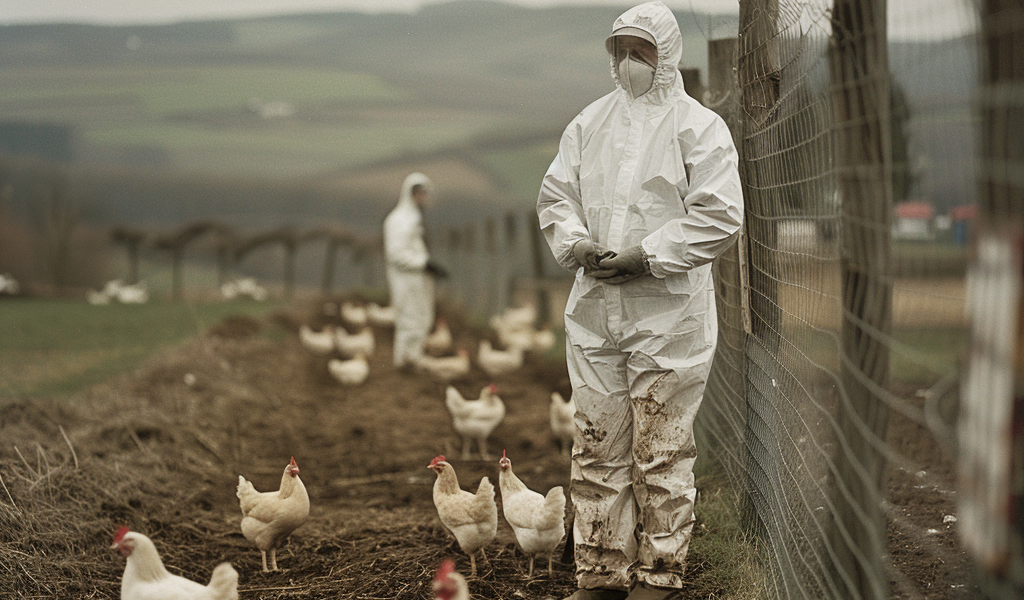Slovakia has recently reported a significant outbreak of avian influenza, commonly referred to as bird flu, on a poultry farm located in the southwestern town of Kamarno, near the border with Hungary. This alarming development has been confirmed by the World Organisation for Animal Health (WOAH), highlighting the increasing concerns regarding the seasonal resurgence of this dangerous disease across Europe.
The outbreak was traced to the H5N1 strain of the virus, which tragically resulted in the death of 200 birds on the affected farm. In response to the outbreak and to prevent further spread of the virus, authorities took decisive action by culling the remaining 40,260 birds in the flock. This swift response underscores the seriousness with which Slovakian officials are treating the situation, as they aim to mitigate the impact of the outbreak.
In addition to Slovakia, Hungary has also reported a resurgence of avian influenza in recent weeks, raising alarms about the potential for widespread outbreaks in the region. The H5N1 virus has been known to pose significant threats not only to bird populations but also to human health, making it critical for authorities to monitor and contain any outbreaks effectively.
As Europe braces for what is expected to be a challenging season regarding avian influenza, the agricultural and veterinary sectors are on high alert. The seasonal nature of the virus often leads to increased cases during the colder months when birds are more likely to congregate, facilitating the spread of the disease.
Health officials and farmers are urged to remain vigilant, implementing biosecurity measures to protect flocks from potential exposure to the virus. These measures include restricting access to poultry houses, ensuring proper sanitation protocols are followed, and monitoring bird health closely for any signs of illness.
The implications of avian influenza outbreaks extend beyond animal health, affecting food supply chains and economic stability within the poultry industry. As countries work to address these outbreaks, the impact on poultry production and the potential for increased prices for consumers remain significant concerns.
The situation in Slovakia serves as a reminder of the ongoing challenges posed by infectious diseases in agriculture. With previous outbreaks having caused substantial losses in poultry populations and economic repercussions, the need for preparedness and rapid response is more critical than ever.
Authorities are continuing to collaborate with international health organizations to monitor the situation and share information regarding best practices for managing avian influenza outbreaks. As the situation develops, stakeholders across the agricultural sector are encouraged to stay informed and proactive in their efforts to combat this persistent threat.
With the onset of colder weather, the possibility of further outbreaks looms, prompting discussions around vaccination strategies and enhanced biosecurity measures to protect both domestic and wild bird populations. The agricultural community is urged to take all necessary precautions to safeguard their flocks and ensure the resilience of the poultry industry during this challenging time.





